Fundamentalism in Latin America — what can the Church do?
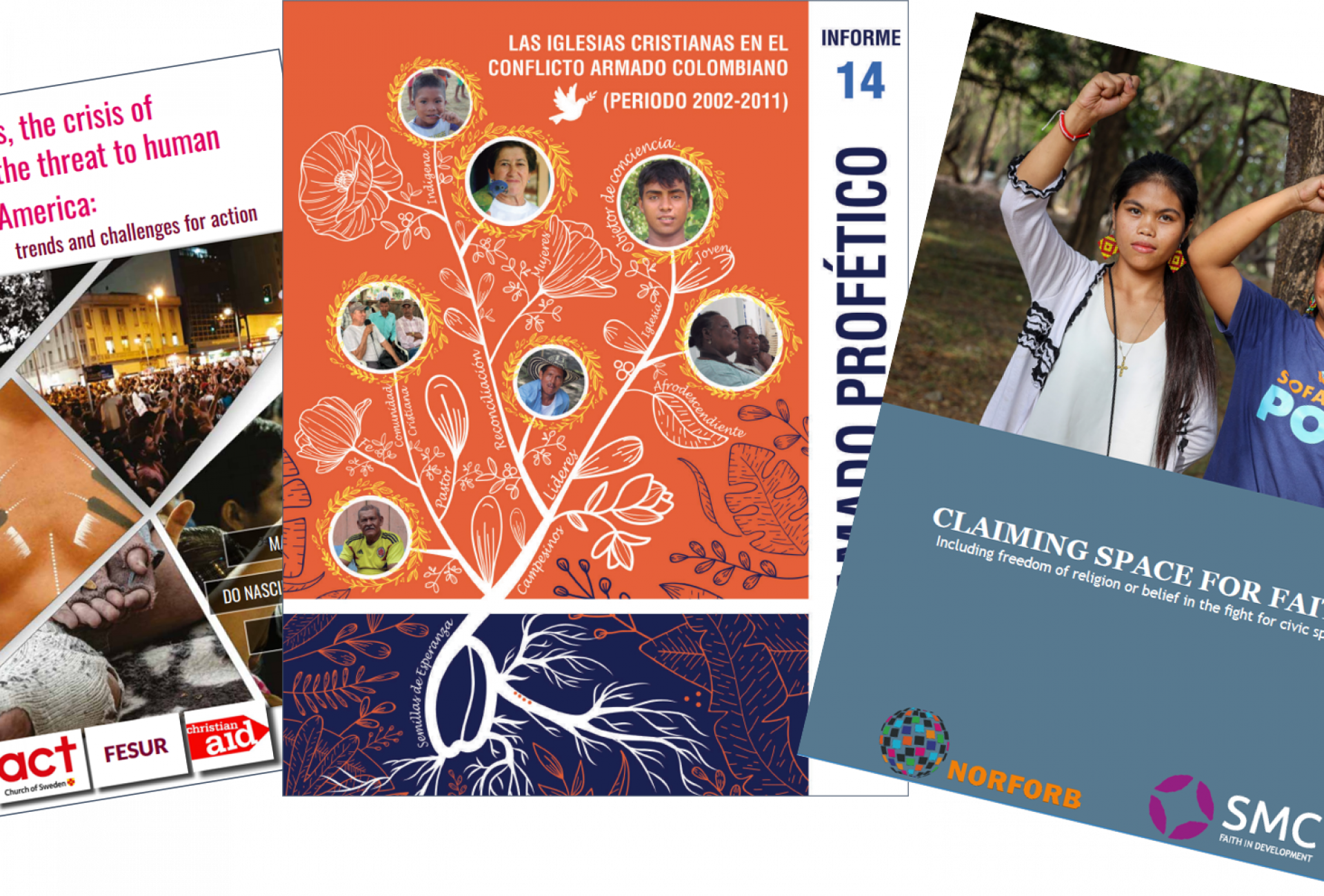
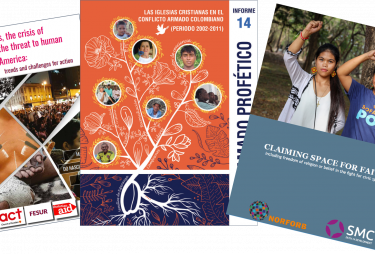
“A political-religious version of fundamentalism has evolved in Latin America over the past 20 years. It has weakened democracy across the continent. Understanding these developments is crucial for people and organisations who want to promote and defend human, social, cultural, sexual and environmental rights.”
That’s according to Dr. Magali Do Nascimento Cunha, author of the report Fundamentalisms, the crisis of democracy and the threat to human rights in South America. The report was published by the South American ACT Ecumenical Forum (FESUR) and funded by the ACT Church of Sweden and Christian Aid/UK.
We asked some questions about the report and how it has been discussed in our network to the SMC’s theological advisor Petter Jakobsson.
What’s the report about?
The report describes a serious development in Latin America where polarisation between different groups, between right and left, between liberal and reactionary, has led to a reduction in democratic space, human rights violations and a fragmented civil society. It is a development that we and many of our member organisations recognise and try to counteract through support for local partners.
Based in Argentina, Brazil, Colombia and Peru, the report describes how evangelical and pentecostal movements have played a major role in political developments in Latin America in recent decades. A major focus of the report is how SRHR and LGBT+ rights have been affected.
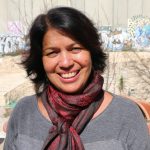 Within the framework of the Knowledge Forum for Religion and Development, the SMC and ACT Church of Sweden invited the Brazilian report author Dr. Magali Do Nascimento Cunha to an open digital seminar to discuss the report’s conclusions on 3 June. Why would you do that?
Within the framework of the Knowledge Forum for Religion and Development, the SMC and ACT Church of Sweden invited the Brazilian report author Dr. Magali Do Nascimento Cunha to an open digital seminar to discuss the report’s conclusions on 3 June. Why would you do that?
The report provides a valuable historical description of how marginal Christian movements have entered the political arena in Latin America from the outset. It should be pointed out, however, that it is written from a point of view many would describe as left-wing and with the historically Protestant churches as a starting point. In doing so, the report also bears criticism for a simplistic view of evangelical Christians.
When we at the SMC took note of the report earlier this spring, we reacted to the fact that parts of the content were generalizing. The description of pentecostal and evangelical movements needed to be nuanced. We and several of our member organizations find the description of these movements too superficial and generalizing.
Therefore, we enlisted the help of our member organizations EFK and the Christian Peace Movement in particular to balance the report author’s perspective and invited some of their contacts to the seminar: Dr. Valdir Steuernagel, a Brazilian Lutheran priest with links to the Lausanne movement and the Evangelical Alliance of Brazil; and the theologian Santiago Espitia Fajardo, who is the director of The Mennonite Biblical Seminary of Colombia.
After all, the seminar was about more than the report, why?
With the broadening of speakers, more issues were raised during the seminar and the report’s focus on the crisis of democracy and the threat to human rights ended up more in the background. Instead, the discussion was about who the fundamentalists really are and how they can be understood in relation to those called evangelicals, but also how these multifaceted and complex groups relate to political power in Latin America. Everyone agreed that the reality is much more complex than the report shows.
But what does fundamentalism really mean in the report?
The report defines “fundamentalisms” in the plural, not as a religious approach to sacred texts but as a mixture of religion and political ambition: “a worldview or an interpretation of reality based on a religious matrix, combined with associated political actions that weaken democratic processes and human rights. In particular, the development related to sexual and reproductive rights, indigenous people and diversity.
Fundamentalisms are not homogeneous, they are diversified, consist of different groups – religious or non-religious. But they have common enemies that they fight in different ways in public spaces. That is why the structural nature of fundamentalism is opposition.” (freely translated from English)
Based on conversations with our member organizations, we think that the definition in the report is good as a basis for understanding the link between religion and politics in Latin America. But one also needs a broadened view of different Christian movements, what we call “religious literacy”, in order to avoid a simplified or one-dimensional picture of a very complex reality.
How is it that evangelical Christians have gained so much influence in politics?
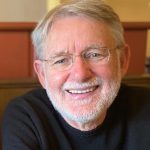 Dr. Valdir Steuernagel pointed to the long historical connection between church and rulers in Latin America, often with problematic links to colonialism, patriarchy and racism. He pointed out that many of the movements now allying themselves with power from the beginning worked in the margins to mobilise and “free” people from poverty. But with the huge growth in membership in recent decades, parts of these movements have inevitably moved closer to power.
Dr. Valdir Steuernagel pointed to the long historical connection between church and rulers in Latin America, often with problematic links to colonialism, patriarchy and racism. He pointed out that many of the movements now allying themselves with power from the beginning worked in the margins to mobilise and “free” people from poverty. But with the huge growth in membership in recent decades, parts of these movements have inevitably moved closer to power.
After all, several of our member organisations work against corruption and for peace and reconciliation in the region.
How do faith-based organizations and churches contribute to more democratic development in Latin America?
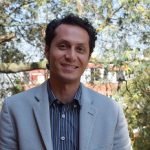 Colombian theologian Santiago Espitia Fajardo talked about how, within the Mennonite peace organization Justapaz, they use contextual Bible studies in local congregations to effectively discuss fundamentalism and the divisions they see in society. He meant that peace and reconciliation are built from the bottom up. The needs of real people among the grassroots and in the local parishes need to be understood in order to reverse the trend. Dr. Valdir Steuernagel agreed when he said:
Colombian theologian Santiago Espitia Fajardo talked about how, within the Mennonite peace organization Justapaz, they use contextual Bible studies in local congregations to effectively discuss fundamentalism and the divisions they see in society. He meant that peace and reconciliation are built from the bottom up. The needs of real people among the grassroots and in the local parishes need to be understood in order to reverse the trend. Dr. Valdir Steuernagel agreed when he said:
– We must not forget how powerful the gospel can be at the grassroots level. The typical evangelical Hispanic is poor, young, female and part of a small congregation.
Could the participants at the seminar see any hopeful way forward?
Santiago Espitia Fajardo argued that churches play an important role as a meeting place for many different opinions — and for what is known in Spanish as “los dialogos improbable” — the unlikely talks.
He said dialogue is confused with debate and winning an argument. But dialogue is more about listening and trying to understand the second part. This is the role of the Church — to listen to different ideas about politics, ethics, the Bible. During the last elections in Colombia, Justapaz created a seat in the Church to listen to the various political candidates. That place was open to everyone. Please read justapaz’s report on the role of churches during the armed conflict in Colombia (in
Spanish).
However, the report’s author Dr. Magali Do Nascimento Cunha argued that there are limits to which dialogue can be had and mentioned Bolsonaro as an impossible dialogue partner. Instead, she advocated cooperation with actors — religious and secular — of “good will”. Several participants in the seminar disagreed, but pointed out that without dialogue we risk even more polarization.
What do you think? Discuss with us on social media!
Learn more about religion and civil society
See the recording of the seminar that we invited through the Knowledge Forum for Religion and Development on June 3: The role of fundamentalism in a changing political landscape in Latin America
The report Fundamentalisms, the crisis of democracy and the threat to human rights in South America is published in 2021 by the South American ACT Ecumenical Forum (FESUR) and has been funded by the ACT Church of Sweden and Christian Aid/UK.
Justapaz’s 2020 report on the role of churches in the armed conflict in Colombia: Las iglesias christianas en el conflicto armado Colombiano (in Spanish)
Debate on the report in the newspaper Dagen, June 2021.
Our Claiming Space for Faith report is a comprehensive 2020 survey of faith-based organizations’ experiences of restrictions on democratic space, violations of freedom of religion and belief, but also lists examples of strategies that the organizations surveyed use to address these challenges.
